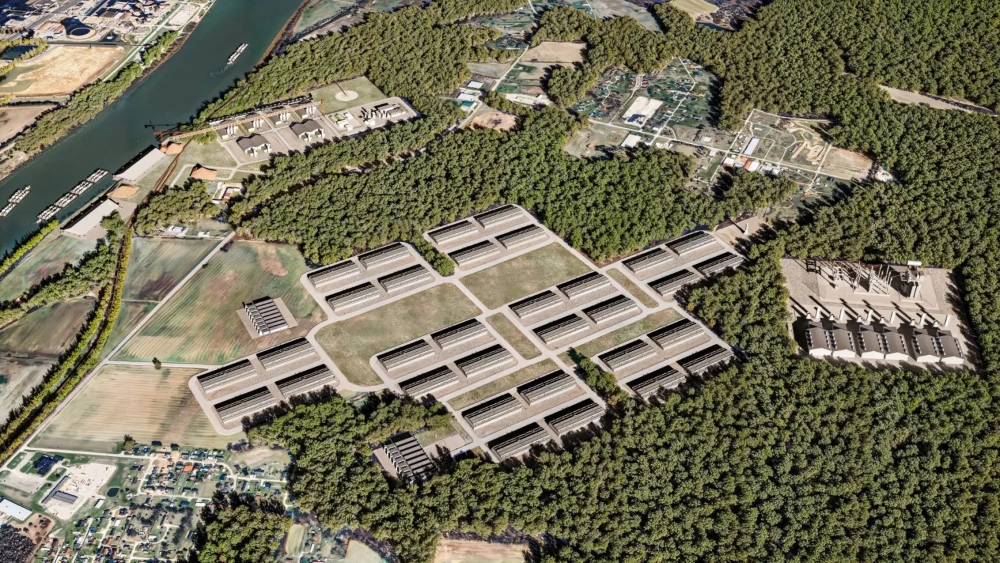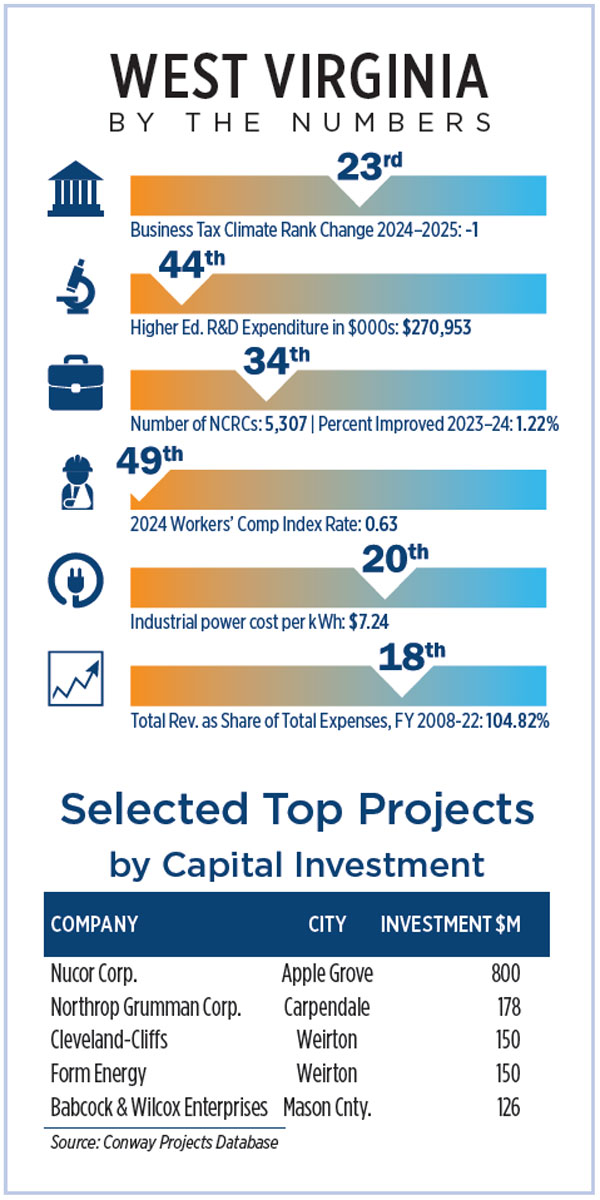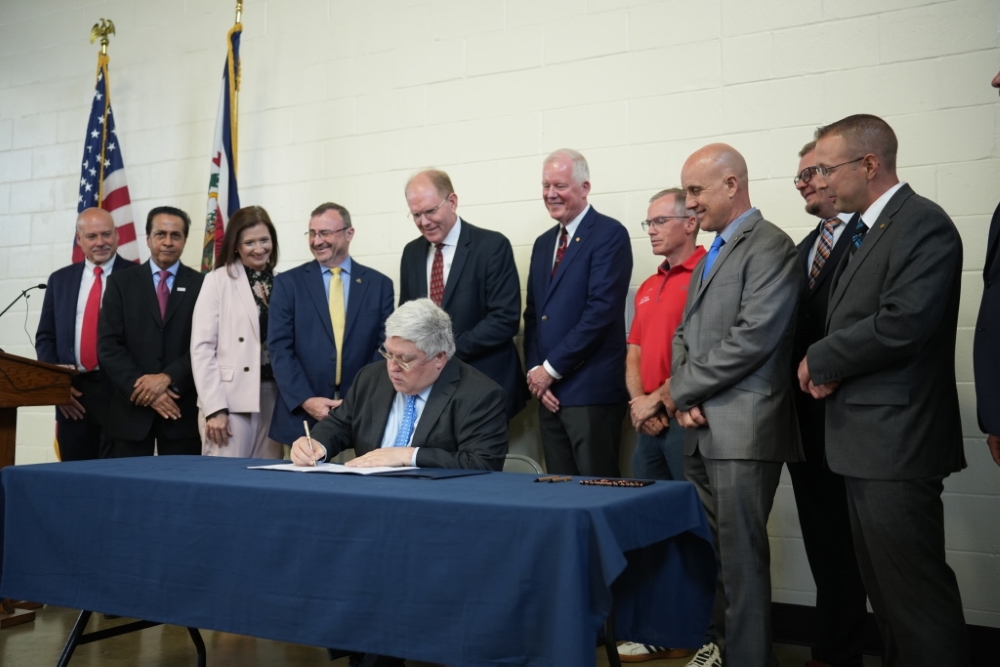Big-budget data center developers keep a watchful eye on West Virginia.
Welcome to the next frontier of the world’s most advanced data centers: West Virginia.
Thanks to legislation that just passed, the state is creating a certified microgrid program to support the establishment of new on-site power for high-end data center campuses. Called the Power Generation and Consumption Act, the law boosts microgrid development to facilitate the expansion of data centers. The goal is to expedite and amplify the project permitting process; and it further accelerates an “all of the above” approach to energy development that includes coal, natural gas and renewable energy.
After signing the bill into law on April 30, Gov. Patrick Morrisey said, “The Power Generation and Consumption Act will make West Virginia the most attractive state in the country for data centers and help America better compete with China in the technology arms race of the future. Combined with the one-stop permitting bill, companies will now be able to quickly build, expand and increase job creation right here in West Virginia.”
One company that already has its eye on West Virginia is O’Leary Ventures, which recently kicked off a $70 billion AI data center project in northwest Alberta, Canada. Could something similar come to the mountains of West Virginia? Time will tell, but the groundwork has been laid to allow it to happen quickly.

Fidelis is building the 2,000-acre Monarch AI Data Center campus in Mason County, West Virginia.
Image courtesy of Fidelis
Here is a synopsis of what happened in April: Gov. Morrisey signed two bills in Point Pleasant in Mason County near the future site of the Fidelis 2,000-plus-acre Monarch AI Data Center Campus — a development project that the microgrid legislation is designed to attract. The two pieces of legislation address the two biggest needs for data centers: power and permitting.
House Bill 2014, the Power Generation and Consumption Act, creates a certified microgrid program to expand microgrid development using coal and natural gas. The bill also reinvests in West Virginia by creating funds for economic development and grid stabilization.
House Bill 2002 creates the One-Stop-Shop Permitting Program, setting up a Permitting Dashboard to operate as a “one-stop-shop” for obtaining and renewing qualifying business permits, effectively streamlining the process in West Virginia.

Lighting Up the BrightLoop
Earlier this year, Fidelis teamed up with Babcock & Wilcox to develop a BrightLoop facility for processing coal into low-carbon energy to power the Mountaineer Gigasystem site in Mason County. The energy plant is being designed to process coal, biomass and natural gas into lifecycle carbon-neutral energy using the plentiful natural resources of West Virginia. The power will then be used to energize the onsite AI data center campus.
The Mountaineer Gigasystem is the intended power source for the 2,300-acre Monarch AI Data Center System which consists of the Monarch Compute Campus (MCC) at North Point Pleasant and the Expansion MCC, known as EMC2, at Lakin. The project is located in one of West Virginia’s High Impact Industrial Business districts. The entire undertaking is expected to create 3,000 jobs over the course of a 10-year period.
Upon buildout, the $5 billion energy and data center campus could reach 1,000 megawatts (1GW) in capacity.
Experts who have watched this West Virginia project and political process unfold say that the state is on the right track for creating a competitive business environment for data centers.
“The West Virginia Power Generation and Consumption Act is unique,” says John H. Boyd Jr., principal of The Boyd Company Inc. “What distinguishes it, especially from states like Ohio, Virginia and Montana which do have energy initiatives targeting the data center industry, is the fact that West Virginia is including coal as another fuel option to support microgrids for data centers and for overall grid relief.”
Boyd adds that “the other states emphasize natural gas or other renewables for on-site power generation. West Virginia — a coal industry powerhouse — is also unique in that this initiative is administered by the state’s economic development division. Many states support data center development through various tax incentives, especially sales tax on server equipment, and also support the growing need for microgrid development, but not in such a targeted effort coming out of their economic development departments like the new West Virginia program does.”

Jonah Samples, attorney with Nelson Mullins in Huntington, West Virginia, says the new legislation “creates private power zones for data center projects of 90 megawatts or greater. You can avoid all local zoning laws with this new legislation, and you can also avoid Public Service Commission regulation.”

Randall Saunders, partner at Nelson Mullins, says, “West Virginia as a state is committed to developing data centers as an industry. We are a state of 1.8 million people, but 70 to 80% of the U.S. population is withing a day’s drive of West Virginia. The goal of this legislation is to streamline the process to make it as easy as possible to build new data centers in the state.”
Tapping into ARC & OZ Funds
Samples adds that funding for these projects could come from multiple sources. “There are opportunities for funding from the Appalachian Regional Commission and the Opportunity Zones program,” he says. “You pair that with the State of West Virginia incentives, and you get a very favorable setup.”
West Virginia can also take advantage of its plethora of brownfield sites through these new programs, says Samples. “West Virginia has been looking at how to use these old sites again,” he notes. “With some of these rural sites, funds are available for development.”
Another advantage for developers, adds Samples, is that “you can negotiate deals in West Virginia. The state wants to bring these projects in, and to help make that happen, you can actually negotiate deals with local governments. They had six days to get this legislation across the finish line, and they got it done.”
Saunders says that is emblematic of the new business climate in West Virginia. “It is a small state. You can leverage connections here,” he says. “You can come up with creative approaches to using and reusing sites. West Virginia is interested in doing this.”

